The Choosi Choices Report 2020
In an age of information overload, the way we make choices has changed. Through the power of technology, we can now ask any question we want and be guaranteed an answer — all with the click of a finger. But does this abundance of information actually serve us, or does it just make life more complex?
Our latest instalment of research, The Choosi Choices Report, explores this in detail and uncovers what’s really important when it comes to making choices. It surveyed over 5,000 males and females aged 18 and above (from Generation Z through to Pre-boomers), and digs into the decisions that modern life throws at us — big and small, along with the influences behind our decision-making behaviour such as people, ethics, technology, and even a once-in-a-century global pandemic thrown into the mix.
Decisions during COVID-19
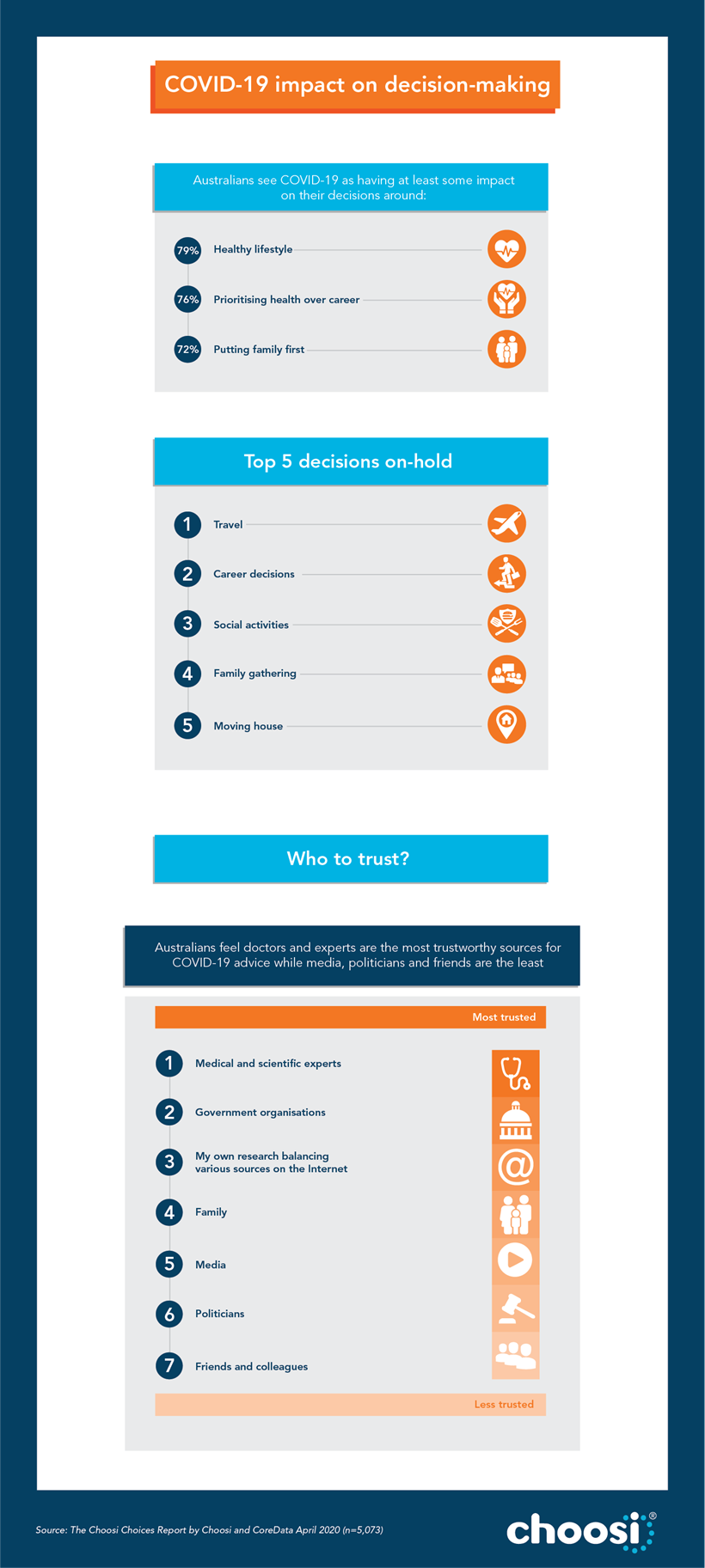
The impacts COVID-19 has had on our nation and the world are far reaching and have made us re-assess certain aspect of our lives. We’re re-prioritising what’s important with 78.7% of those surveyed choosing to be healthier. We’re also putting our health and wellbeing (76.2%), and family (72.1%) ahead of our career.
Many of us feel it’s been hard to make the right decisions about how to respond to the outbreak. While some of us look to medical and scientific reports, and government organisations as trusted sources of information, the feeling of ‘fake news’ and conflicting information in the media and online has made the process much harder.
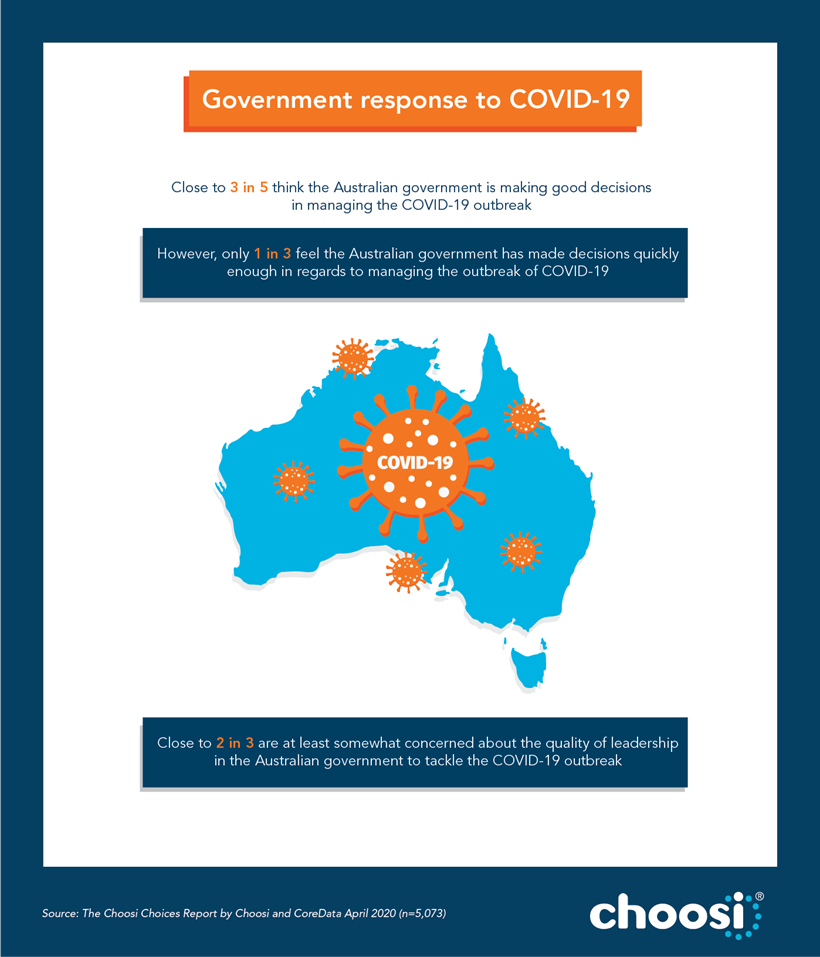
Nearly 3 in 5 feel that the Australian government has made good decisions in managing the pandemic, with the older generations feeling more positive about our government’s response compared to the younger generations.
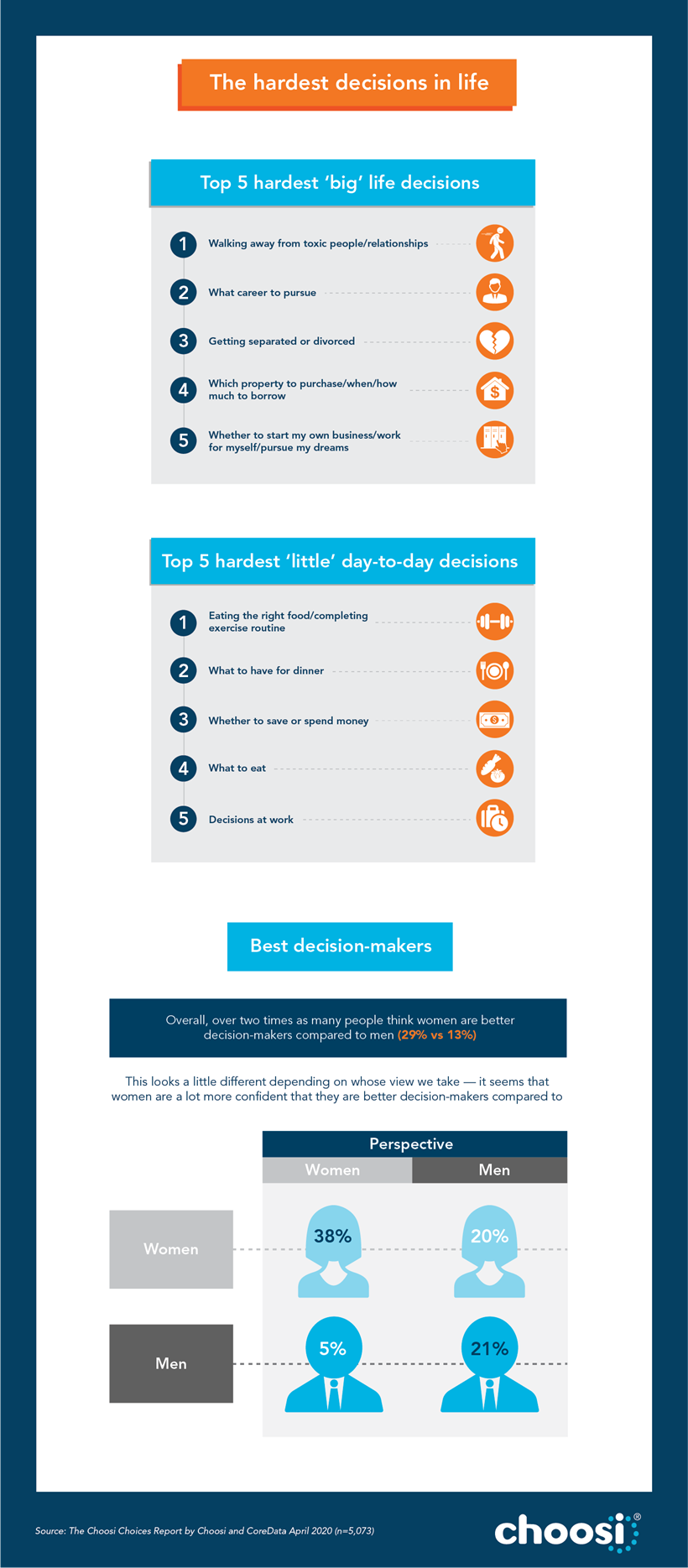
The paradox of choice
On average, we make 35,000 decisions per day. So it’s no wonder that these range from super simple to considerably complex.
From decisions around relationships and family, to career and property decisions, making any choice to change our life trajectory can be very difficult — especially during these uncertain times. Around 1 in 5 of those surveyed stated that walking away from toxic people and relationships is the hardest decision by far.
On the other side of the scale, we seem to struggle with trivial decisions, such as eating the right food (41.9%), what to have for dinner (39.9%), whether to save or spend money (38.7%), what to wear (16.1%), and even what to watch on Netflix (21.2%).
In theory, decision-making should have become easier due to information accessibility and the support of technology. And many of us agree, with 68.9% of those surveyed feeling that making certain decisions have become easier because information is more readily available and the fact that we feel as though we can trust technology to help handle some of our decision-making (68.1%).
The reality though, is that it can actually be harder for us to make decisions due to the increased access to information we have. Many of us feel overwhelmed by the large selection available (76.4%) and agree that choices are getting harder to compare (67.8%), with almost 4 in 5 saying that uncertainty about the future makes committing to decisions harder.
Paralysis by analysis
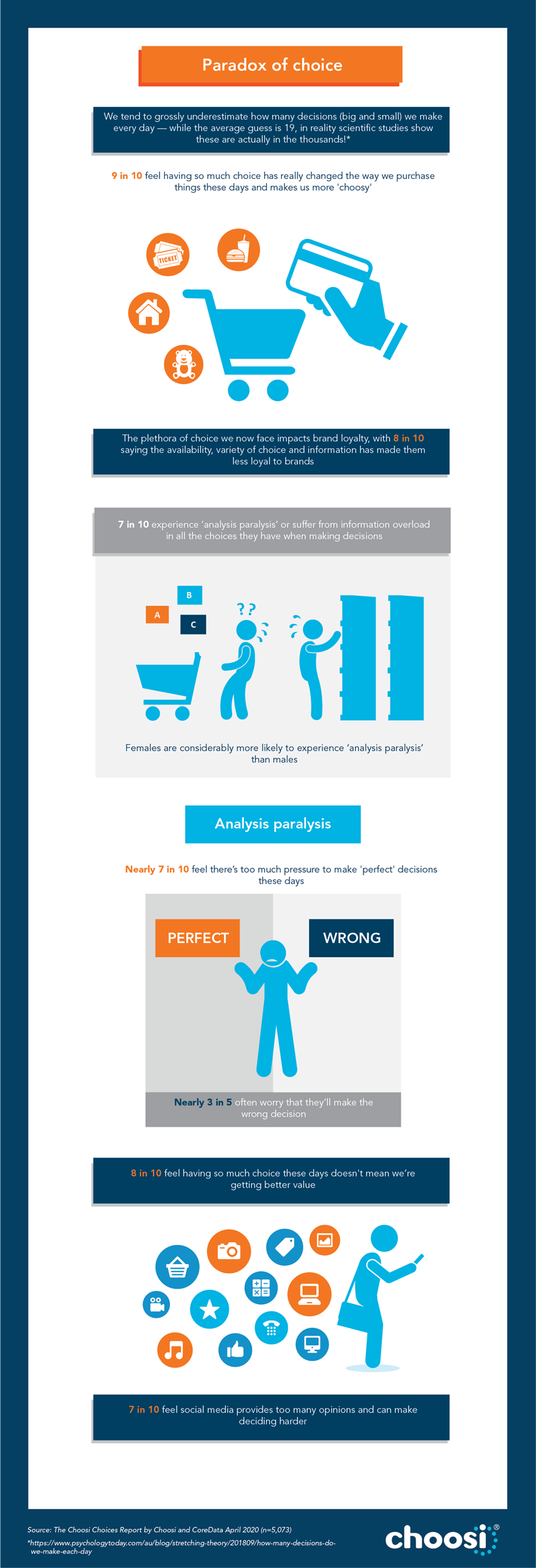
Although the ever-increasing freedom of choice seems to have a generally positive impact on the happiness of almost two-thirds that were surveyed (60.1%), the effects of ‘analysis paralysis’ (41.4%) and the higher stress levels around half (50.6%) of us experience when it comes to making decisions, are certainly not negligible.
While more options have allowed us to be more selective, we’re less likely to be loyal to particular brands (80.2%). We’re also more at risk of falling into the ‘analysis paralysis’ trap with 2 in 3 (66.8%) of us agreeing we’re under too much pressure to make ‘perfect’ decisions these days. In turn, over half (56.3%) of us have a fear of making the wrong decision.
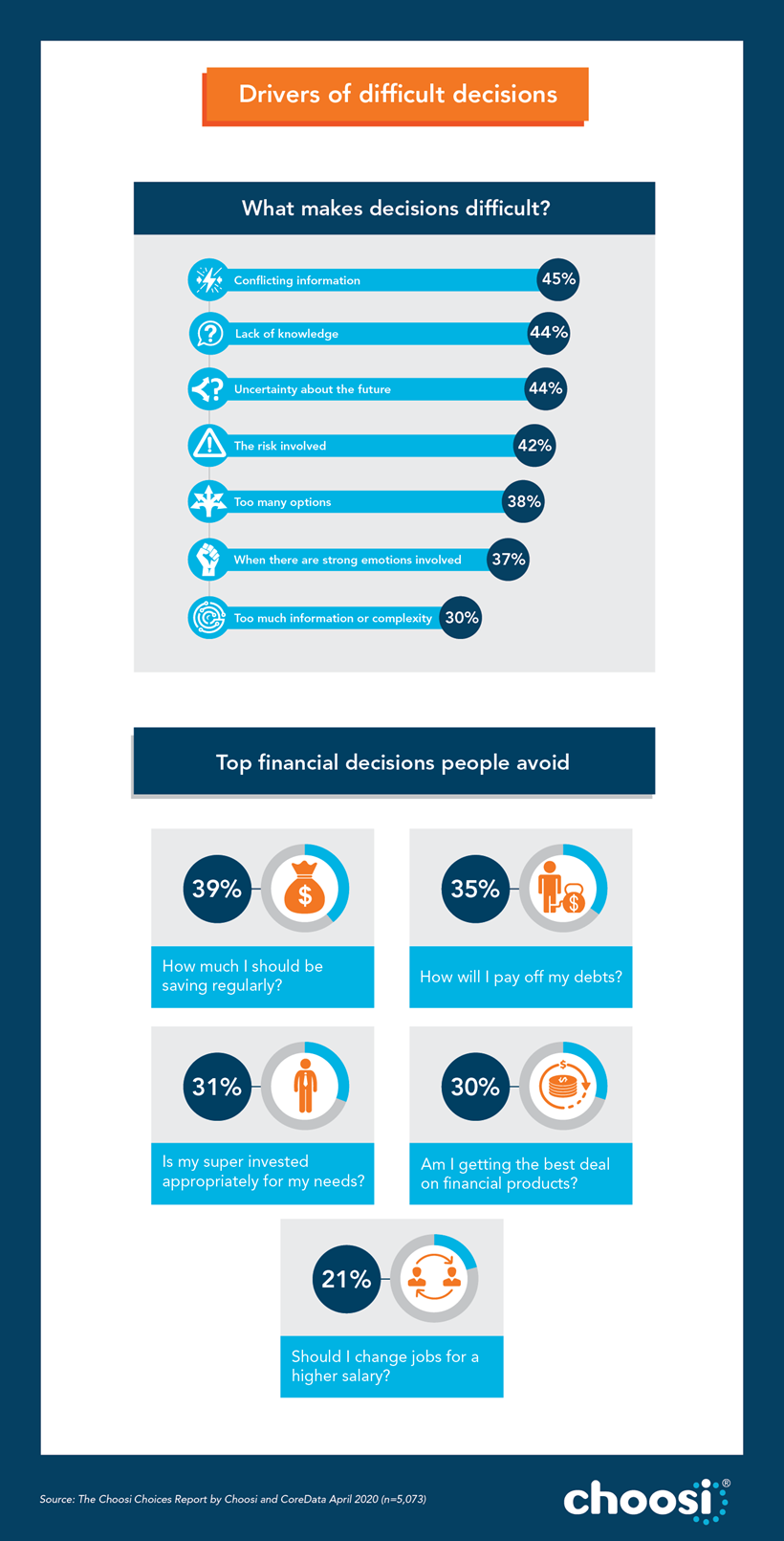
The difficulty we can have in decision-making mainly comes from conflicting information (45.3%) and a lack of knowledge or experience (44.4%). Uncertainty around the future is also a major factor in making decisions harder, which is likely exacerbated by recent events.
Instinct vs. Insight
So, with all this information available to us, how much are we letting it influence our decision-making?
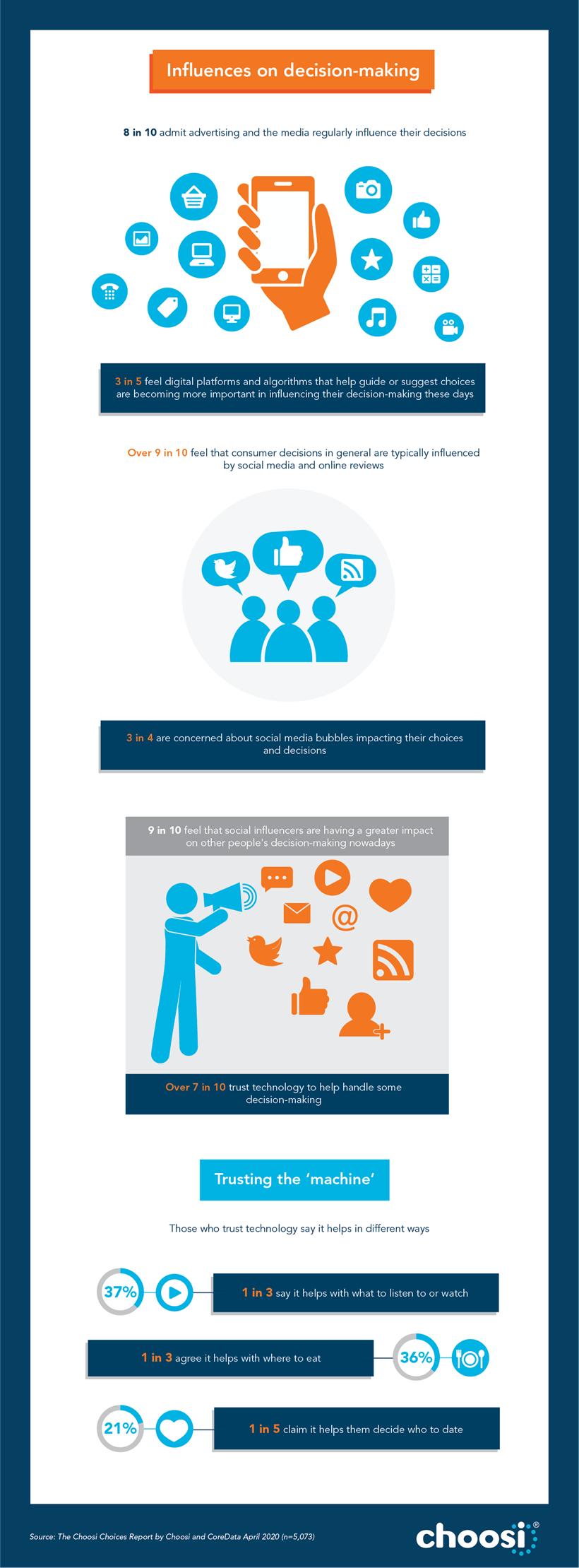
When it comes to social influencers, the perception of how they impact our own behaviours compared to others differs a little. Most of those surveyed agree that influencers are having a big impact on decision-making these days (88.6%). However, a much smaller portion of us feel they’re having the same impact on our own decisions (34.2%).
Maybe less of a surprise, is that a large majority of Generation Z are increasingly reliant on platforms and algorithms (77.0%) to help guide decisions, compared to less than half of the Baby Boomer generation (43.8%).
The personas of choice
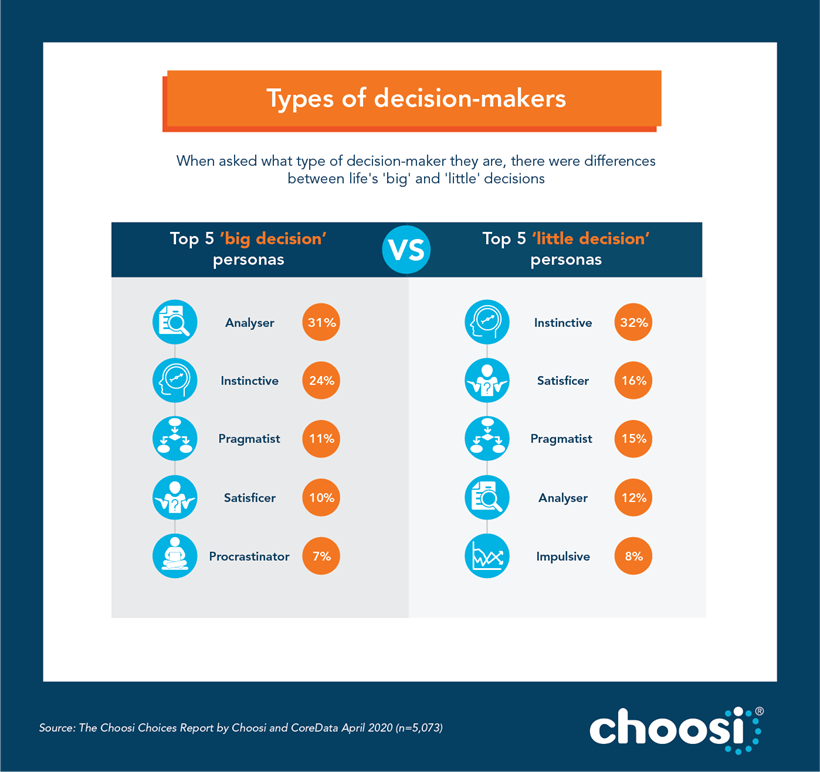
When it comes to making decisions, big or small, we lead with our heads and our hearts. When faced with big decisions, close to a third (30.7%) of those surveyed describe themselves as an ‘Analyser’, followed by an ‘Instinctive’ decision-making style (23.8%). On the other hand, ‘Instinctive’ personas (31.9%) dominate the smaller everyday decisions.
Power to change
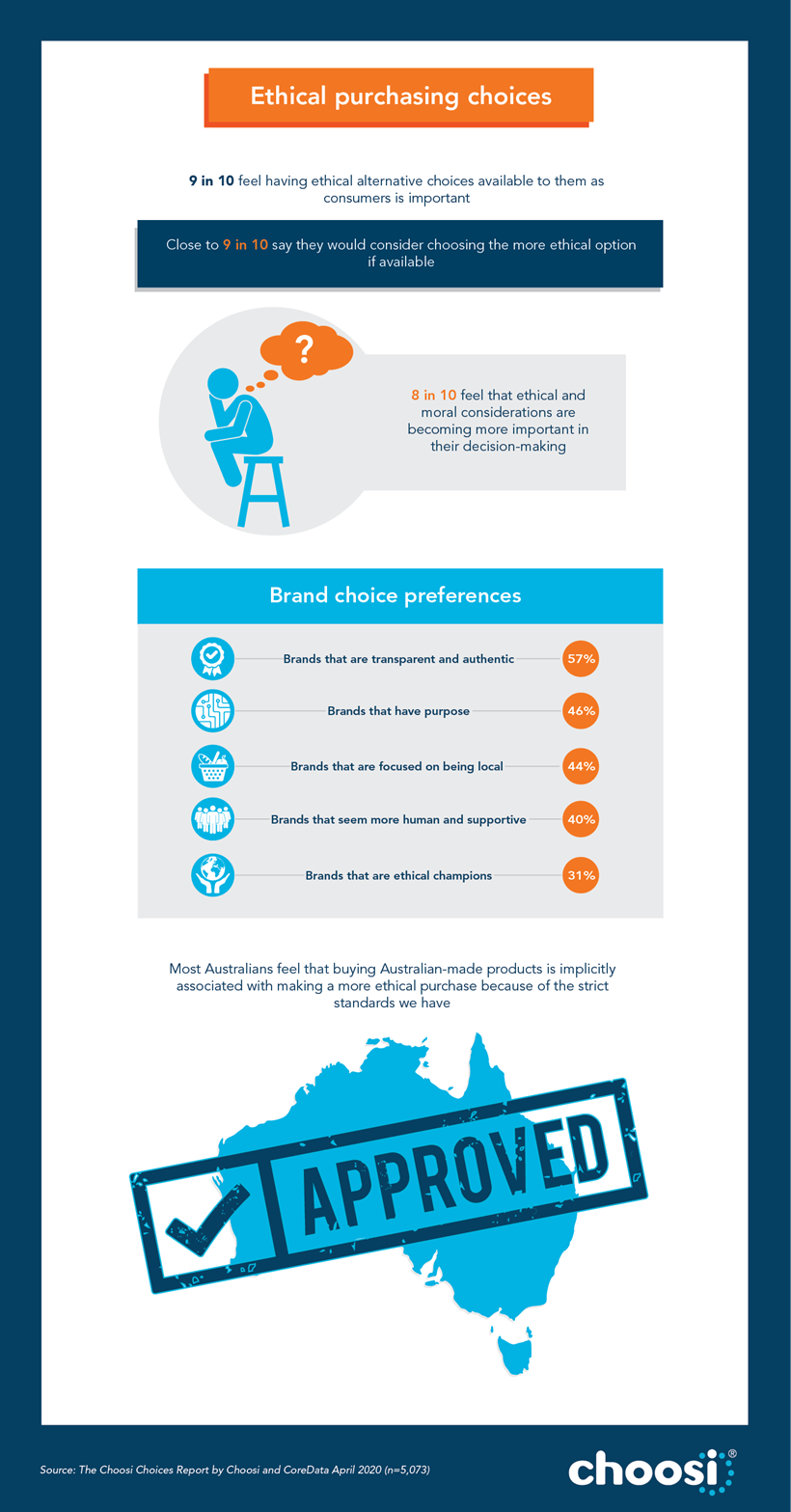
We live in an age where information is more accessible than ever, but are we using any of this towards doing good?
The research tells us that many of us are. We often choose the more ethical option if one is available (85.9%) and most of us agree that it’s important to have ethical alternative choices available to us as consumers (90.6%). Only a small proportion of those surveyed (16.7%) aren’t swayed by ethical influences.
However, money talks and affordability can play a factor. Around 2 in 5 (39.5%) of those surveyed say they’d choose the ethical option as long as the price is about the same. With that said, 43.8% would choose the ethical option, even if it meant paying a premium price.
We’re also passionate in our belief that brands should serve a purpose beyond just profit. Generation Z are the most likely to hold this view, especially when compared against Baby Boomers (84.3% and 70.4% respectively). And although we want brands to showcase this purpose, we’re a little sceptical.
Around 82.5% of those surveyed are suspicious about the authenticity of the ethical claims made by brands and agree that brands should educate us more about how to make more ethical purchase decisions (87.2%).
Whether it’s what to eat or where to buy a house, we certainly have our work cut out for us when it comes to all the decisions we need to make. And try as we may, we can’t avoid it — decision-making is a part of life and can lead to great things.
On that note, we’re off to decide on tonight’s dinner. Stay tuned for the next chapter of the Choosi research series.
11 Aug 2020